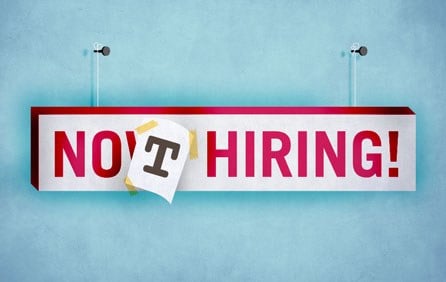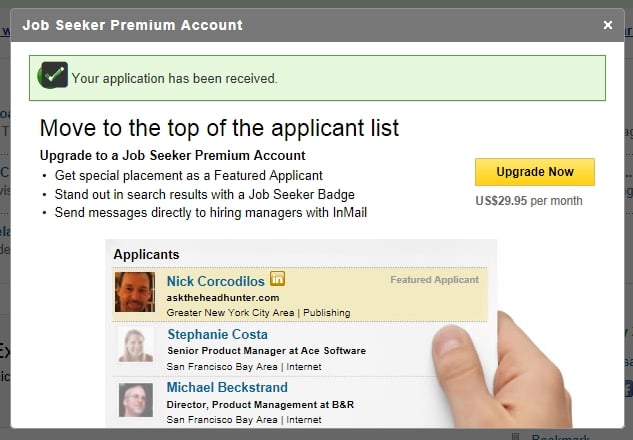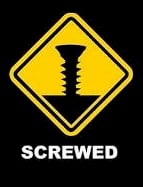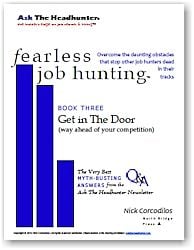In the September 17, 2013 Ask The Headhunter Newsletter, a reader asks why headhunters charge you to join their database so they can “find” you and earn big fees by placing you. Where’s the search in that?
I run a small, high-tech company and I’ve been looking at various models for hiring top-level executive talent, and also in case I decide to look for a new executive job myself. What’s your quick take on the BlueSteps Executive Search service that I keep seeing advertised? I know you say the candidate should never be paying to find a job. BlueSteps charges executive job seekers $329 to join its database. Is it the same story here? I thought headhunters got paid big fees to go find people — not to charge me to join the database they search.
Nick’s Reply
You nailed it. The candidate should never pay a dime to find a job — especially when a corporation is paying a big-name “executive search firm” huge fees to find the right candidates. (Real headhunters go out and find good candidates; they don’t charge candidates to be found.)
 What is it, anyway, with this new “business model” online? Create a database, charge job seekers to add their information, then charge employers (or headhunters) to find the information. Everybody pays! And the entrepreneurs doing business this way come off like slimeballs. Great business model!
What is it, anyway, with this new “business model” online? Create a database, charge job seekers to add their information, then charge employers (or headhunters) to find the information. Everybody pays! And the entrepreneurs doing business this way come off like slimeballs. Great business model!
We’ve discussed TheLadders, CareerBuilder, LinkedIn, and other job boards that charge job seekers — and then charge employers. (You should never pay for access to jobs — or to headhunters.)
Now there’s a new player in this league. BlueSteps — an operation of the Association of Executive Search Consultants (AESC). It’s doing what LinkedIn does: tapping job seekers for fees. It’s a racket.
Then the executive search firms that belong to BlueSteps charge their clients — corporate employers — one-third of a new hire’s salary to fill executive positions. We’re talking $100,000+ fees.
What makes these search firms worth so much? It’s a good question, because according to BlueSteps’ website, (1) they fill jobs by surfing a resume database, and (2) they deliver job seekers who paid to join the database. That’s not worth $100,000.
Real executive headhunters don’t sit in front of a screen reading resumes that come across the BlueSteps — or any other — database. They actually go out into the world and hunt the people their clients need. They travel in their professional community. They go where top talent hangs out and mix it up. They talk to respected members of the executive community and form long-term relationships. They track down talent that is hidden or unknown to their clients and bring it home.
 When headhunters find their candidates in a database that job seekers pay to join, something smells. This is not headhunting.
When headhunters find their candidates in a database that job seekers pay to join, something smells. This is not headhunting.
Consider: BlueSteps is an association of search firms that get paid in the vicinity of $200,000 to fill a $600,000 job (one-third of the new hire’s salary). So, why is the AESC charging people to put their resumes into a database that its members can then query to find candidates? It rightfully raises an alarm. Suddenly, executive search is not worth $200,000. Any employer’s own personnel jockeys can surf databases to find people at any salary level. The same executives that populate the BlueSteps database are in other databases, like LinkedIn.
The suckers here are not just executives who pay $329 to “join” the BlueSteps database. The really big suckers are corporations that pay exorbitant fees to lazy headhunters who while away their hours feeding at the database trough.
Check this testimonial on the BlueSteps website from a managing partner at a world-class executive search firm:
“BlueSteps is a very effective way of being visible to the retained search community, as its database is constantly mined by AESC member firms.”
Mined?? Why aren’t these lazy headhunters out actually finding top executive talent? Why are they relying on job seekers who paid to get into the database?
Another managing partner (Don’t you love that title?) at another executive search firm testifies:
“Through BlueSteps, we quickly located three of our top candidates located in a broad geographic cross-section including Los Angeles, New York City, St. Louis and London. The candidate signed on for a total compensation package of $500,000+.”
This headhunter collected a fee that was probably around $166,000 — for querying a database. This is not executive search. This is lazy. This is a racket.
BlueSteps says that “in the past 90 days 3,549 BlueSteps database searches [were conducted] by executive recruiters,” and that executive profiles in the BlueSteps database were viewed 12,732 times.
What those managing directors are saying is, We no longer conduct the searches we’re being paid to conduct. We search databases, just like you do — and we charge you $200,000 to fill your open job the way your own personnel jockeys do it.
So, now that we’ve dissected this silly proposition, let’s get to my advice.
If you need to hire an executive, and you have a $200,000 budget to pay a headhunter, go to a small boutique search firm that actually has good contacts in your industry. Use a headhunter who flies below the radar, and who will go out and meet, talk with, and cultivate the best industry sources to get credible, trusted referrals to the best candidates. These are often solo practitioners who are highly respected in the industries they hunt in — headhunters who have relationships that yield excellent referrals. They don’t need LinkedIn, and they don’t need BlueSteps. They make their money the old-fashioned way: They earn it. (You can learn How to Work With Headhunters… and how to make [real] headhunters work for you.) They invest in people and in relationships — not in cheap recruiting tricks. And they get off their butts and actually recruit.
But if you want candidates from a database that people pay to join, then try BlueSteps.
Or, if you have $200,000 to spend and you’re smart, my guess is you could fill the job yourself. And that’s the lesson here. Filling top jobs properly, by finding the best people, is hard work, but it’s not rocket science. It’s just astonishing that AESC and BlueSteps and their members, who call themselves “executive search” firms, conduct “searches” by surfing databases, and by charging job seekers fees “to be found.”
That’s not worth $200,000. Or even $329. Don’t pay lazy headhunters.
If you’re an employer, how much do you pay headhunters, and what do you get in return? If you’re a job seeker, have you ever paid a headhunter?
: :













